50th anniversary of King’s Nobel Prize acceptance speech
Posted December 10th, 2014 by James DeWolf PerryCategory: History Tags: Civil rights movement, Emancipation to Equality, Eric Garner, Ferguson, Martin Luther King Jr., Michael Brown, Nobel Peace Prize
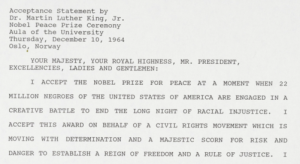 Today is the 50th anniversary of Martin Luther King, Jr.’s Nobel Peace Prize acceptance speech in Oslo, Norway on December 10, 1964. He was, at the time, the youngest person ever to receive that honor.
Today is the 50th anniversary of Martin Luther King, Jr.’s Nobel Peace Prize acceptance speech in Oslo, Norway on December 10, 1964. He was, at the time, the youngest person ever to receive that honor.
As the nation is embroiled in protests over the deaths of unarmed black men in Ferguson and Staten Island, let us pause for a moment to consider how much, and how little, has changed in half a century:
I accept the Nobel Prize for Peace at a moment when 22 million Negroes of the United States of America are engaged in a creative battle to end the long night of racial injustice.
I accept this award on behalf of a civil rights movement which is moving with determination and a majestic scorn for risk and danger to establish a reign of freedom and a rule of justice.
I am mindful that only yesterday in Birmingham, Alabama, our children, crying out for brotherhood, were answered with fire hoses, snarling dogs and even death.



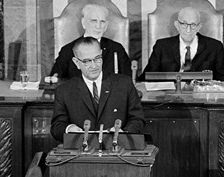 Today is the 50th anniversary of the War on Poverty.
Today is the 50th anniversary of the War on Poverty. Fifty years ago today, on June 29, 1963, the city of Birmingham, Alabama re-opened its municipal golf courses, making them available for the first time to both white and black citizens.
Fifty years ago today, on June 29, 1963, the city of Birmingham, Alabama re-opened its municipal golf courses, making them available for the first time to both white and black citizens.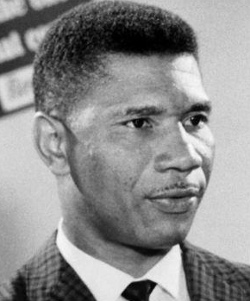 Yesterday, I wrote here on the 50th anniversary of one of the most momentous days in the history of the civil rights movement.
Yesterday, I wrote here on the 50th anniversary of one of the most momentous days in the history of the civil rights movement.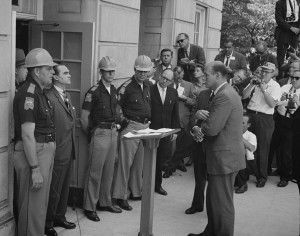 On the morning of June 11, 1963, Governor George Wallace of Alabama personally and physically intervened, in front of television cameras, to attempt to block the desegregation of the University of Alabama in Tuscaloosa.
On the morning of June 11, 1963, Governor George Wallace of Alabama personally and physically intervened, in front of television cameras, to attempt to block the desegregation of the University of Alabama in Tuscaloosa.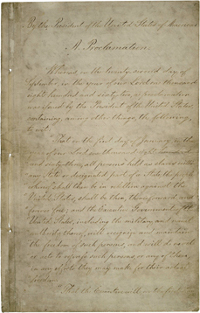 Today is the first day of 2013. This is an anniversary year that we’ve been talking about, and anticipating, for a long time here at the Tracing Center.
Today is the first day of 2013. This is an anniversary year that we’ve been talking about, and anticipating, for a long time here at the Tracing Center.